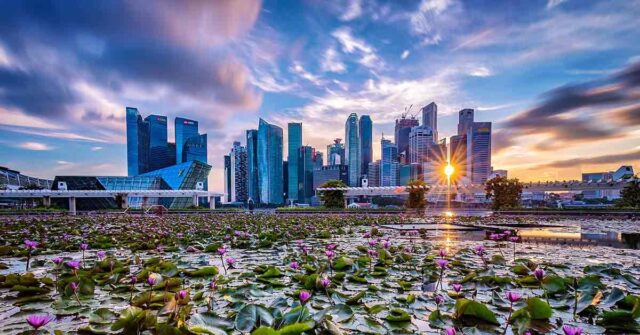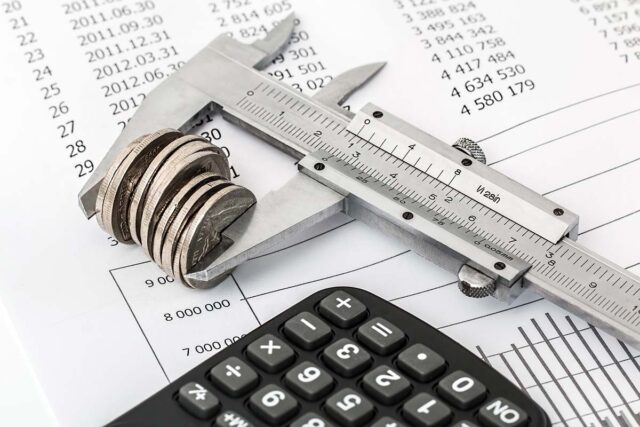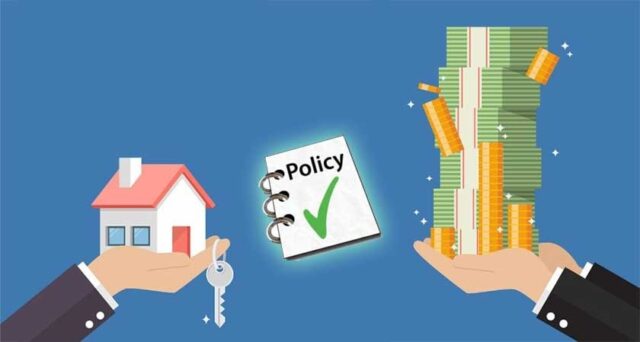
Singapore offers a stable economy, strong property laws, and high demand for real estate. Property prices remain high due to limited land and strong investor interest.
Foreign investors face additional regulations, but many still see potential due to Singapore’s reputation as a financial hub. High rental demand makes property ownership attractive, but taxes and cooling measures impact profitability.
Investors should assess financial goals, market trends, and government policies before making a decision. Researching new developments like Elta condo can provide insights into potential opportunities. Location, price trends, and future infrastructure projects influence long-term value.
Singapore Property Market Overview

Singapore has built a reputation for having one of the most stable property markets in Asia. Strict regulations, a strong legal system, and consistent demand from both locals and foreign investors keep property prices high.
The country’s limited land supply further drives property values, making real estate a desirable asset. Investors see Singapore as a safe place to put their money due to its strong economy and political stability.
The government plays a key role in maintaining market balance through various cooling measures. Property ownership remains a popular investment choice, with luxury condominiums and mixed-use developments gaining traction.
Prices in prime locations continue to rise, but suburban areas also offer strong investment potential.
Investors must analyze financial goals and market trends before making a purchase.
Long-term property appreciation remains a major draw, but government regulations and costs should be carefully reviewed before committing to any investment.
Key Factors Shaping the Market
- Land Scarcity drives competition for properties, pushing prices upward
- Foreign Investments influence demand, increasing property values in key districts
- Government Policies regulate market fluctuations and limit speculative buying
- Rental Demand from expatriates and locals impacts investment returns
- Infrastructure Development such as new MRT lines and business hubs enhances property value
Factors Affecting Property Prices
Several factors determine property prices in Singapore. Limited land supply plays a major role, creating an environment where prices remain consistently high.
Economic growth directly influences demand, with strong financial performance leading to higher property values.
Government policies such as cooling measures and stamp duties also shape market conditions. Foreign investments contribute to price surges, particularly in prime locations.
Rental demand plays a part in keeping property values stable, especially in areas with high expatriate populations.
Infrastructure development, including new MRT stations and business hubs, can significantly impact property appreciation in surrounding neighborhoods.
Market sentiment and interest rates also play a crucial role, as higher loan rates make properties less affordable
Major Price Influencers
- Land Supply remains scarce, leading to continued price growth
- Government Regulations prevent excessive speculation and market bubbles
- Foreign Ownership increases demand in prime residential districts
- Infrastructure Growth raises the appeal of suburban areas
- Rental Market Conditions shape profitability for investors
Foreign Ownership Rules

Foreign investors can buy private condominiums in Singapore without restrictions, but landed properties and public housing remain off-limits unless special approvals are obtained.
The Additional Buyer’s Stamp Duty (ABSD) significantly increases costs for non-citizens, making investment less affordable. Singapore’s property laws prioritize local buyers, limiting foreign ownership of certain residential properties.
Non-residents looking to invest must also consider financing restrictions, as banks typically require higher down payments from foreigners.
Those interested in landed properties must seek approval from the Land Dealings Approval Unit, a process that rarely grants exemptions unless the investor provides significant economic contributions to the country.
Public housing, including HDB flats, remains exclusive to Singapore citizens and permanent residents. Investors must review these legal restrictions before committing to a purchase
Foreign Ownership Restrictions
- Private Condominiums available without approval
- Landed Properties require special government approval
- HDB Flats not accessible to non-citizens
- ABSD Tax applies to all foreign buyers
Pros and Cons of Buying Property
Buying property in Singapore presents advantages and challenges. Investors benefit from a stable real estate market with long-term appreciation potential. A strong legal system ensures that property rights remain secure, making Singapore a safe destination for investment.
High rental demand allows for passive income opportunities, particularly in well-located areas. Government regulations maintain a controlled property market, preventing extreme price fluctuations.
However, high property costs and additional taxes significantly increase the financial burden on investors.
The Additional Buyer’s Stamp Duty (ABSD) further inflates costs for non-citizens. Loan restrictions and financing limitations add difficulties for foreign buyers. Maintenance expenses and property management fees must also be factored into investment decisions.
Understanding both the advantages and disadvantages of buying property in Singapore helps investors make informed decisions
Advantages
- Property values consistently appreciate in key districts
- Strong legal protection ensures secure ownership
- High demand for rentals increases passive income potential
- Market stability prevents rapid price declines
Disadvantages
- High initial costs, including taxes and stamp duties
- Loan restrictions limit financing options for foreigners
- Government regulations reduce short-term speculation profits
- Maintenance and management costs impact long-term returns
Taxes and Additional Costs

Property purchases in Singapore involve several taxes and fees that investors must consider.
The Buyer’s Stamp Duty (BSD) applies to all property transactions, with rates increasing based on property value.
Foreign buyers face an additional tax burden due to the Additional Buyer’s Stamp Duty (ABSD), significantly raising the cost of ownership.
Investors selling property within three years must pay the Seller’s Stamp Duty (SSD), discouraging short-term speculation. Ongoing expenses include annual property tax, maintenance fees for condominiums, and potential renovation costs.
Mortgage rates and interest payments also impact the overall affordability of an investment. Legal and agent fees add further expenses to the purchasing process
Breakdown of Key Costs
- Buyer’s Stamp Duty (BSD) applies to all purchases
- Additional Buyer’s Stamp Duty (ABSD) increases costs for foreign investors
- Seller’s Stamp Duty (SSD) applies if resold within three years
- Property Tax varies based on property type and rental status
- Legal and Agent Fees required during transactions
Rental Demand and Profitability
Singapore’s rental market remains strong, driven by a large expatriate workforce and high demand for well-located properties. Properties near business districts, MRT stations, and international schools attract tenants willing to pay premium prices.
Investors should assess rental yield before purchasing a property to determine profitability.
Luxury condominiums in central locations typically provide stable rental income, while suburban properties may attract long-term tenants.
Areas undergoing redevelopment often present new rental opportunities as demand grows. Investors should also consider rental trends and tenant preferences when choosing properties to maximize returns
Top Locations for Rental Demand
- Central Business District (CBD): High demand from corporate tenants
- Orchard Road: Attractive for expatriates and professionals
- Jurong and Paya Lebar: Growing commercial hubs increasing rental interest
- Bukit Timah: Preferred by families for proximity to top schools
New Developments to Consider
New condominium launches provide fresh investment opportunities. Properties in developing districts often appreciate in value due to government infrastructure projects and increasing demand.
Investors should research upcoming developments with strong growth potential.
Projects such as Elta Condo offer modern facilities, strategic locations, and strong rental demand. Areas such as the Greater Southern Waterfront and Jurong Lake District present significant long-term investment potential.
Evaluating the reputation of developers and the projected future value of properties ensures investors make profitable decisions
Upcoming Projects Worth Considering
- Elta Condo: New development in a prime location
- Tengah Smart Town: Future eco-friendly residential area
- Greater Southern Waterfront: Large-scale urban redevelopment
- Jurong Innovation District: Expanding commercial and residential zone
Government Policies on Property

Singapore’s government maintains strict regulations to ensure a stable property market. Cooling measures such as loan restrictions and additional stamp duties control excessive speculation. Foreign buyers face higher taxes to prioritize local ownership.
Loan-to-Value (LTV) limits reduce the amount investors can borrow, preventing overleveraging.
The Seller’s Stamp Duty (SSD) discourages short-term flipping by imposing penalties on early sales.
HDB and Executive Condominium (EC) restrictions further limit investment opportunities for foreigners. Investors must stay updated on policy changes to avoid financial risks
Key Policies Affecting Property Investments
- Loan-to-Value (LTV) Limits restrict borrowing capacity
- ABSD Rates increase taxes for foreign buyers
- Seller’s Stamp Duty (SSD) penalizes resales within three years
- HDB and EC Restrictions limit access for non-citizens
Final Verdict
Property values in prime districts continue to appreciate, while suburban areas provide affordable entry points for investors.
Government regulations ensure market stability, though taxes and costs remain high. New infrastructure projects increase the value of surrounding properties.
Investors should evaluate financial goals, property appreciation potential, and rental demand before committing to a purchase. Considering factors such as location, legal restrictions, and market trends ensures a well-informed investment decision.









